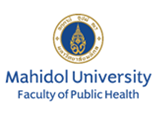[Event Report] Global Health Education Program (G-HEP) 2021-2022 — Global Health Academy Lecture 7: Policy Recommendations and Advocacy (August 11, 2021)
date : 8/24/2021
Tags: Global Health
![[Event Report] Global Health Education Program (G-HEP) 2021-2022 — Global Health Academy Lecture 7: Policy Recommendations and Advocacy (August 11, 2021)](https://hgpi.org/en/wp-content/uploads/sites/2/ghep-08.jpg)
The Global Health Education Program (G-HEP) held its seventh lecture of the Global Health Academy on August 11th, welcoming Ryoji Noritake (CEO & Board Member) and Joji Sugawara (Manager) from the Health and Global Policy Institute (HGPI). The lecture focused on the theme Policy Recommendations and Advocacy.
The session began with a presentation from Mr. Sugawara who reviewed key public health concepts such as health promotion, social determinants of health, and health equity. Based on those concepts, he explained what advocacy means and shared some practical methods that can be applied to advocate for public health issues. Mr. Sugawara then introduced the history of HIV/AIDS advocacy and the Médecins Sans Frontières (MSF) campaign to lower drug prices. He finished his talk by stressing how individuals can engage in and lead advocacy campaigns. Spending time in one’s community to learn about local issues, reaching out to local and national politicians, and speaking up are three simple ways to start advocating for change.
Mr. Noritake spoke during the latter half of the session and introduced examples of HGPI’s past advocacy work. The first case study, Cancer Control Policy (2005-), highlighted the importance of collecting quantitative data, creating key messaging, connecting stakeholders, and involving policy makers and the press. The Stroke and Cardiovascular Control Policy (2009-) case study demonstrated the value of learning from other diseases and countries, while the Noncommunicable Diseases (NCDs) (2011-) project was introduced as a way of supporting the development of policy advocates by gathering the voices of patients and other stakeholders.
The next lecture on Quantitative and Qualitative Research will take place on September 8th.
■ Program Lectures
1) Thailand’s Health System and COVID-19 (complete)
2) Japan’s Health System and COVID-19 (complete)
3) Community Health (complete)
4) Health Technology (complete)
5) Global Health (complete)
6) Migrant Health (complete)
7) Policy Recommendations and Advocacy (complete)
8) Quantitative and Qualitative Research
The Global Health Education Program (G-HEP) is a joint program organized by the Health and Global Policy Institute and Mahidol University, Faculty of Public Health in Thailand.
■About Mahidol University
Mahidol University is the number one university in Thailand for medical education and the first public health academic institution in Thailand.
Vision:
Be a leader in promoting population health through being a health literate faculty in ASEAN countries by 2021.
Mission:
1. To offer an outcome based public health education through being a health literate faculty.
2. To be visible as a leader in public health education, integrative and innovative research, professional academic services on the basis of good governance to promote health and longevity and the betterment of mankind.
Top Research & Recommendations Posts
- [Policy Recommendations] The Path to a Sustainable Healthcare System: Three Key Objectives for Public Deliberation (January 22, 2026)
- [Research Report] The 2025 Public Opinion Survey on Healthcare in Japan (March 17, 2025)
- [Research Report] Perceptions, Knowledge, Actions and Perspectives of Healthcare Organizations in Japan in Relation to Climate Change and Health: A Cross-Sectional Study (November 13, 2025)
- [Policy Recommendations] Reshaping Japan’s Immunization Policy for Life Course Coverage and Vaccine Equity: Challenges and Prospects for an Era of Prevention and Health Promotion (April 25, 2025)
- [Research Report] The 2023 Public Opinion Survey on Satisfaction in Healthcare in Japan and Healthcare Applications of Generative AI (January 11, 2024)
- [Research Report] AMR Policy Update #4: Cancer Care and AMR (Part 1)
- [Public Comment Submission] “Assessment Report on Climate Change Impacts in Japan (Draft Overview)” (December 24, 2025)
- [Policy Recommendations] Developing a National Health and Climate Strategy for Japan (June 26, 2024)
- [Research Report] The Public Opinion Survey on Child-Rearing in Modern Japan (Final Report) (March 4, 2022)
- [Research Report] Survey of Japanese Physicians Regarding Climate Change and Health (December 3, 2023)
Featured Posts
-
2026-01-09
[Registration Open] (Hybrid Format) Dementia Project FY2025 Initiative Concluding Symposium “The Future of Dementia Policy Surrounding Families and Others Who Care for People with Dementia” (March 9, 2026)
![[Registration Open] (Hybrid Format) Dementia Project FY2025 Initiative Concluding Symposium “The Future of Dementia Policy Surrounding Families and Others Who Care for People with Dementia” (March 9, 2026)](https://hgpi.org/en/wp-content/uploads/sites/2/dementia-20260309-top.png)
-
2026-02-05
[Registration Open] (Webinar) The 141st HGPI Seminar “Current Status and Future Prospects of Korea’s Obesity Policy: Voices of People with Lived Experience in Policy Promotion” (March 3, 2026)
![[Registration Open] (Webinar) The 141st HGPI Seminar “Current Status and Future Prospects of Korea’s Obesity Policy: Voices of People with Lived Experience in Policy Promotion” (March 3, 2026)](https://hgpi.org/en/wp-content/uploads/sites/2/hs141-top-1.png)
-
2026-02-06
[Research Report] AMR Policy Update #5: Cancer Care and AMR (Part 2)
![[Research Report] AMR Policy Update #5: Cancer Care and AMR (Part 2)](https://hgpi.org/en/wp-content/uploads/sites/2/HGPI_20260204_AMR-Policy-Update-5.png)





